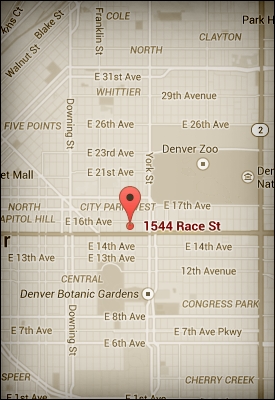There may be a case in which an affirmative defense, such as self defense, is going to be used at trial. However, at the preliminary hearing the judge cannot consider an affirmative defense to the extent that he would determine that there is not sufficient evidence to bind the case over. The main reason here is that affirmative defense are for the jury to determine, not the judge.
Although the prosecution cannot generally use hearsay in a trial, hearsay is perfectly admissible in the preliminary hearing. Second, the law says that the prosecution cannot use 100% hearsay in a preliminary hearing and that there has to be some direct evidence that the defendant committed the crime(s) charged; however, the prosecution often uses 100% hearsay in preliminary hearings and the judges allow it, even when the defense objects.
Sometimes the preliminary hearing serves a purpose in that the defense can show the weaknesses in the prosecution's case, which leads to a better plea bargain and, very rarely, dismissal of charges. Sometimes the defense uses the preliminary hearing in order to have witnesses stand by their statements under oath, so that if the witness changes the statement later on, the defense can show that the witness is changing his or her story.
It is not unusual to find out that the prosecutor reviews the case for the first time the night before the preliminary hearing, and sometimes just a few hours before the hearing. This is understandable when one considers that most prosecutors, especially in state courts, have enormous case loads. The preliminary hearing, therefore, is often the first time that the DA and defense attorney have an opportunity to discuss the case in a meaningful way. If the case is one in which there is a good chance for a plea bargain, the defense will likely waive the preliminary hearing in order to accept the offer by the prosecution. Sometimes the defense will waive the preliminary hearing in order to continue good faith negotiations (often, when the defense insists on going through the preliminary hearing, the prosecution will declare that there will be no opportunity for a plea bargain).
When we have a good idea of the prosecution's evidence and there is room to negotiate, we are more likely to waive the preliminary hearing. In our case, we have a good idea of the prosecution's evidence from reviewing the discovery. In addition, I have briefly spoken with the DA on your case at the second advisement when we set the preliminary hearing. I call her a couple weeks ago and she was on vacation, and I am going to call her again on Monday to begin the process of negotiating a settlement of the case.
Now, I'm going to turn to the basic schedule of a criminal case. We talked about this generally, but that was at the jail and I wouldn't expect anyone to remember everything when they are in custody for the first time.
All felony cases in Colorado have a similar schedule. There is a first advisement in which the accused is told that he or she is under investigation of a specific charge or charges. Within 72 hours, a second advisement occurs in which the charges are filed and the accused gets a copy of the charges and then, depending upon the kind of charges filed, is advised that he or she has a right to either a preliminary hearing or what is now called a disposition hearing. The disposition hearing is different from the preliminary hearing in that it really isn't a hearing at all because no witnesses will be called to gives testimony and evidence to a judge for a determination of probable cause. As you know, the disposition hearing or the preliminary hearing is set within 30 days if the accuse person is going to remain in custody.
After the preliminary hearing, the typical felony case is then bond over from the county court (which usually has jurisdiction over misdemeanor cases only) to the district court. The district court hears only felony cases, not misdemeanors. The district court can accept a misdemeanor disposition in a felony case. When the case goes to the district court for the first time, this is usually called the arraignment. the arraignment is the first time that the accused can enter a plea of not guilty. This is important because the right to speedy trial does not begin until the not guilty plea is made. When the accuse enters a not guilty plea in the district court, the prosecution must try the case within six months of the not guilty plea of the case may be dismissed for a violation of the right to speedy trial. In the vast majority of cases, there will be at least one continuance of the trial date which will necessitate a waiver of the right to speedy trial and a re-setting of the trial. When the trial is re-set, the six month speedy trial clock starts over from the date of the waiver of speedy trial. As an example, there may be a case in which it is important to stretch the case out in order to accomplish a specific result that may be related or unrelated to the case, such as the need to get into and complete a counseling program, or to get enough time to get the defendant situated so that there will not be adverse consequences with respect to work or travel, etc.
In between the arraignment and the trial, the court will usually set a deadline for filing and litigation of motions. Motions may include motions to suppress evidence or statements that the defense believes were unlawfully seized or obtained by the police and/or the prosecution. Sometimes a case will require that motions for the production of evidence be filed. For example, the prosecution may have a number of civilian witnesses who have lengthy criminal histories which must be disclosed to the defense. There may be informants, or agreements with informants that must be disclosed. There may be expert testimony that must be reviewed. There may be a motion to suppress identification if the defense has reason to believe that the police obtained an identification of the accused in an unlawful manner. There may be one motions hearing, or a number of motions hearings, depending on the case and the issues in the case.
Finally, if there is a plea of guilty to the charge or a less severe charge, or if there is a guilty verdict by the jury at trial, the court will then set a sentencing date. The sentencing date is set sometime between 6 and 8 weeks (or longer) after the verdict or the plea. At that time the defense may present mitigating evidence and/or testimony. The sentencing hearing most often is not very complicated because the parties have negotiated a disposition in which everyone has a good idea of exactly what the sentence will be. Sometimes there will be a stipulated sentence, in which the judge agrees to a specific sentence that the parties have negotiated in advance. In some cases, and in cases in which there was a trial, the sentencing issues may be complex, and prosecution or the defense may present additional evidence for the judge to consider at sentencing. A good example is a case in which restitution is still at issue at sentencing and both parties want to be heard as to the correct amount of restitution.



